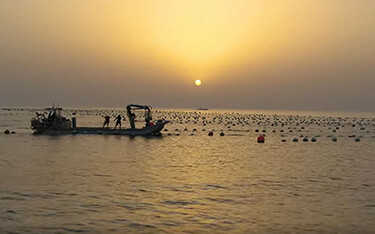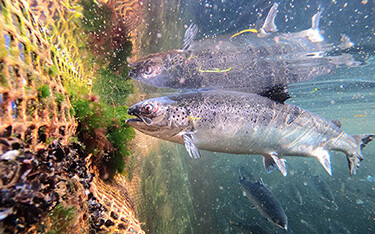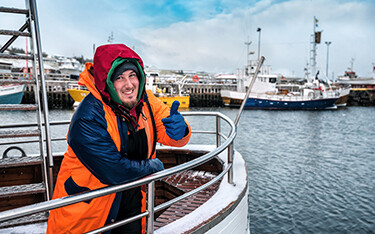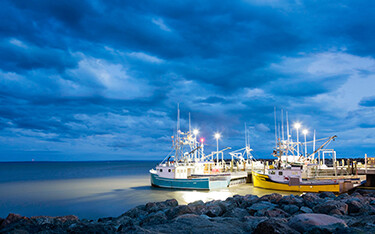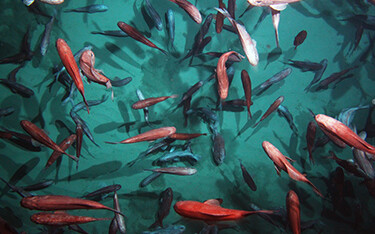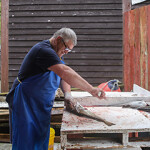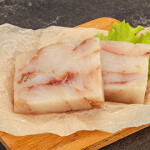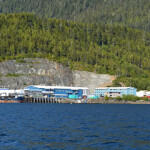United Arab Emirates-based Dibba Bay Oysters has achieved the Friend of the Sea aquaculture certification, making it the only certified aquaculture farm in the region.
Located in Fujairah, on the east coast of the U.A.E, Dibba Bay Oysters is the only farm in the Middle East currently growing oysters at a commercial scale for human consumption. It now produces approximately 300,000 oysters a month and it continues to scale up
… Read MoreThe Aquaculture Stewardship Council has released an updated version of its salmon standard with a new approach to sea lice monitoring that environmental groups have criticized.
ASC released version 1.4 of its salmon standard on 5 September, following a science-based review process. The new edition of the standard has a specific scope on sea lice management, with the aim of establishing more robustness in sea lice sampling and monitoring and the
… Read MoreSeven members of the seafood industry and seven NGOs are calling upon the Food and Agriculture Organization of the United Nations (FAO) to better protect the fisher’s welfare on wild-caught vessels by improving data collection and analysis of labor-related accidents.
Three major tuna processors, the Bolton Group, Bumble Bee, and Tri-Marine, along with seafood industry groups of Fedespesca, SEA Alliance, and the Hong Kong Sustainable
… Read MoreThe International Seafood Sustainability Foundation (ISSF) released its annual “Status of the Stocks” report in July 2022, finding global tuna catches are increasingly coming from healthy stocks.
Since its last "Status of the Stocks" report in March 2022, the percentage of total commercial tuna catch worldwide harvested from stocks at “healthy” levels of abundance has increased from 80.5 percent to 86.4 percent. ISSF
… Read MoreThe United Nations Development Program (UNDP) has funded a second cohort of 10 ocean innovators with the hop of bringing economic benefits to small-island developing states and least-developed countries.
UNDP’s Ocean Innovation Challenge is part of UNDP’s Ocean Promise to deliver at least 100 ocean innovations by 2030. OIC provides up to USD 250,000 (EUR 250,000) over two years to develop innovative solutions that are
… Read MoreThree of New Zealand’s largest orange roughy fisheries have achieved the Marine Stewardship Council (MSC) standard recertification. These fisheries represent approximately 73 percent of New Zealand’s orange roughy harvests and were the first orange roughy fisheries to be certified as sustainable to the MSC fisheries standard in 2016.
The owners of quota for New Zealand’s deep-water fisheries are represented by The Deepwater
… Read MoreThe red rock lobster fishery in Baja, Mexico has received its third Marine Stewardship Council (MSC) standard recertification since becoming one of the first 10 fisheries in the world to obtain MSC certification in 2004.
The fishery is overseen by the Regional Federation of Cooperative Societies of the Fishing Industry of Baja California (FEDECOOP), which acts as a client and integrates 14 cooperatives together, nine of which are MSC-certified.
… Read MoreCharoen Pokphand Foods PCL (CP Foods) announced progress to reduce use of antibiotics in aquaculture along with other sustainability efforts as part of the Seafood Business for Ocean Stewardship (SeaBOS) initiative. SeaBOS is a group of ten of the largest global seafood companies working towards more sustainable seafood production and improved ocean health.
As part of SeaBOS’s collaboration, several task forces were created to focus
… Read MoreThe Fisheries Transparency Initiative (FiTI) has laid out a case against ranking fisheries transparency efforts in a global fisheries transparency index.
FiTI is a global multi-stakeholder partnership focused on increasing transparency and collaboration in marine fisheries management. It is working with governments of coastal nations around the world to produce country reports that provide a deep dive into the state of the
… Read MoreThe Pacific whiting (hake) mid-water trawl fishery is the first fishery outside of Alaska to achieve Responsible Fisheries Management (RFM) certification. The fishery covers federal waters off the U.S. states of Washington, Oregon, and California.
The Pacific whiting fishery is now eligible to sell products harvested from 10 January, 2022, forward with the RFM eco-label. The RFM certification process was initiatived by the Pacific Whiting
… Read More

